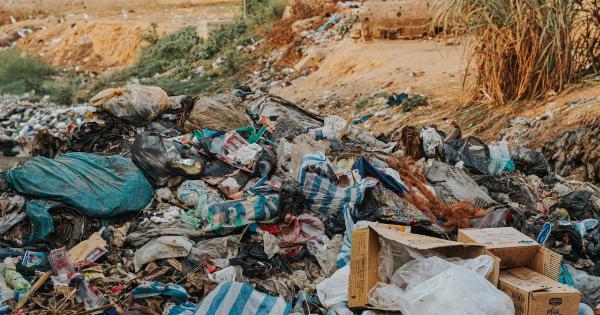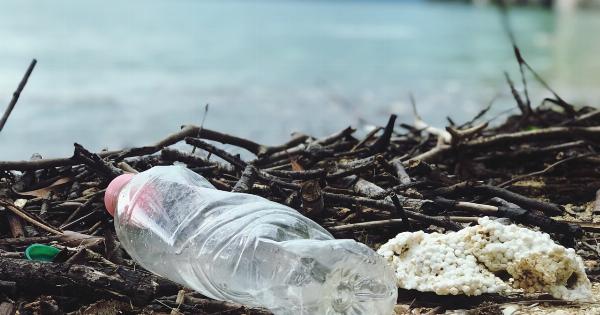Plastic pollution is one of the biggest environmental issues that our planet is facing today. From plastic waste floating in oceans to microplastics in our food chain, plastic pollution is affecting our planet in ways that we cannot even conceive.
The problem of plastic pollution is not only about the items we use and throw away, but it’s also about the materials that these items are made of. A new study has found that plastic taps are a significant contributor to plastic pollution, and this is something that we all need to pay attention to if we want to save our planet from the devastating effects of plastic pollution.
The Research Findings
The research, which was conducted by a team of scientists from the University of Plymouth, found that plastic taps are a significant source of microplastics, which are the small plastic particles that are less than 5mm in size.
These microplastics are not only harming our planet, but they are also making their way into our food chain, causing serious health risks for humans and animals alike.
The researchers conducted an experiment where they exposed plastic taps to various conditions that simulate normal domestic use. They found that the taps released microplastics at a rate of more than 190 particles per day.
This means that a single plastic tap can release millions of microplastics particles per year.
The research also found that the microplastics particles released by the plastic taps were of different shapes and sizes.
This is a significant finding because these particles can easily enter our food chain and harm the wildlife that depends on these ecosystems.
The Impact of Plastic Taps on the Environment
Plastic taps are used in millions of households across the globe and are an essential part of our daily lives. They are used to dispense water, which is one of the most abundant resources on our planet.
However, the problem with plastic taps is that they are not designed to last for long, and they are easily replaced when they break or when the design becomes outdated.
This means that plastic taps end up in landfills, where they take hundreds of years to decompose. During this time, they release microplastics particles into the environment, causing serious harm to the planet.
These particles not only harm the environment but also make their way into the food chain, where they can have serious health implications for humans and animals.
The effects of plastic pollution on the environment are devastating. Every year, millions of tons of plastic waste end up in our oceans, where they harm marine life, disrupt ecosystems, and pollute beaches.
Plastic waste also harms terrestrial life, where wildlife often gets entangled in plastic waste or consumes it, causing serious health issues.
Solutions to the Problem
The problem of plastic pollution is complex, and it will require a concerted effort from individuals, businesses, and governments to solve it.
However, there are several solutions that we can adopt to reduce our plastic footprint and minimize the impact of plastic pollution on our planet.
First, we need to reduce our dependence on plastic. We can do this by switching to reusable containers and bags, using glass or metal straws, and avoiding single-use plastics as much as possible.
Second, we need to recycle more of our plastic waste. Many plastics can be recycled, and we need to ensure that we recycle as much as possible to reduce the amount of plastic waste that ends up in landfills.
Third, we need to switch to biodegradable plastics. Biodegradable plastics are designed to decompose quickly, reducing the amount of plastic waste that ends up in landfills or oceans.
Fourth, we need to hold businesses and governments accountable for their plastic use.
Businesses need to be encouraged to use sustainable and eco-friendly materials, and governments need to introduce policies that reduce plastic waste and promote sustainable practices.
Conclusion
Plastic pollution is a significant environmental issue that is affecting our planet in ways that we do not fully understand.
Plastic taps are a significant contributor to plastic pollution, releasing millions of microplastic particles into the environment each year. However, there are solutions that we can adopt to reduce our plastic footprint and minimize the impact of plastic pollution on our planet.
By reducing our dependence on plastic, recycling, switching to biodegradable plastics, and holding businesses and governments accountable, we can reduce the damage caused by plastic pollution and create a cleaner and healthier planet for future generations.






























